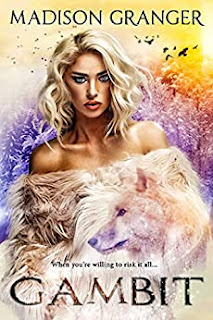Necessary Murder: Saving your Stories by Killing Your Darlings
There's a quote that all writers know but seldom are aware of who coined it. The phrase has been contributed to so many authors at this point that I'm not even going to try to credit the original sayer. However, Stephen King once said, "Kill your darlings, kill your darlings, even when it breaks your egocentric scribbler's heart, kill your darlings".
Kill your darlings...Ouch...
Seems harsh, right?
I loathe killing darlings. In case you are new to the writing scene and are unaware of what darlings refer to, darlings are the small, insignificant, beautifully written scenes that writers ultimately fall in love with despite them having no real effect on their story. Some might call these fillers. As popular killing darlings are, I'm almost ashamed to admit that I love them so much.
Darlings, to me, are like the little moments in life. They may seem inconsequential, but they have the power to lift or crush a spirit. Take DC Comics, for instance. I love Batman and his Robins so I watch a lot of DC animated movies and read a lot of their comics. There is a scene in the Justice League Versus the Teen Titans movie where Superman gets possessed while doing laundry.
Superman could have been possessed anywhere. The fact that there is a chunk of time, no matter how small it might be, where he is simply doing his laundry in his apartment laundry room is a darling. It could have been cut, but it wasn't. Why?
Why, if we writers are advised to kill are darlings do many of them still make it into our final products?
The answer is simple. There is nothing more real than everyday moments. In the scene I mentioned, we see Superman, Clark Kent, doing an everyday chore in his run-of-the-mill apartment. Scenes like that make bigger-than-life characters feel relatable.
In my book, The Lives We Live, 2: Truth Be Told there is a scene where Xander is sitting atop the washer, reading while he does his own laundry. The whole scene was unneeded. I could have cut it and the story wouldn't have been impacted. However, I left that scene because I loved how it showed Xander's human side and I've gotten comments from readers that they've loved it too. Laundry, you see, is something we all understand, even if we aren't a solar powered hero or a siren from the depths of the sea.
So, yes, I believe that killing your darlings can be a crime. It's literary murder, sometimes. That being said, there are times when a darling has to go.
I've been stuck on my current manuscript for a month. My goal was to have it completely written and edited by the end of July. There is now one week left in the month and I am only halfway through the story. This is obviously no bueno.
I had to look at the story as a whole and ask myself, "What doesn't belong here?", "Why is the story so drawn out?", "What need's changed?", and sadly I came up with a conclusion I wish I hadn't. Thomas needed to be removed.
The character of Prince Thomas was one I really wanted to explore, but I realized that The Secrets of Sera's Point is not the book to do it in. He's the perfect knight in shining armor and I adored a scene where he was arguing with the physician about his role in the Resistance, but his presence isn't needed. I needed to remove him from the story. I'm not happy with this decision, but since I've made it the story has been flowing better.
There are pros and cons to killing your darlings like there are pros and cons to everything in life, the challenge is knowing when to kill them and when to let them grow. I'm not going to lie, it's hard figuring out whether you should kill them or not. Expert writers even struggle with this, but the more you write, the more you get to know your characters, the more you'll know what belongs in the story and what doesn't. The most important thing to realize is that YOU are the one with the power to decide what ultimately stays or leaves your story. Your editor can make suggestions, but if something doesn't feel right to you, don't do it. Your readers will be able to tell if you aren't happy with your story.




Comments
Post a Comment